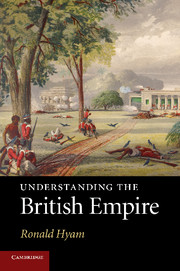Book contents
- Frontmatter
- Contents
- List of plates
- List of figures
- List of maps
- List of tables
- Preface
- Acknowledgements
- List of abbreviations
- Introduction: perspectives, policies, and people
- I Dynamics: geopolitics and economics
- II Ethics and religion
- III Bureaucracy and policy-making
- 7 Bureaucracy and trusteeship in the colonial empire
- 8 Africa and the Labour government, 1945–1951
- 9 John Bennett and the end of empire
- IV Great men
- V Sexuality
- VI Imperial historians
- Published writings of RH on imperial history
- Index
7 - Bureaucracy and trusteeship in the colonial empire
Published online by Cambridge University Press: 05 August 2012
- Frontmatter
- Contents
- List of plates
- List of figures
- List of maps
- List of tables
- Preface
- Acknowledgements
- List of abbreviations
- Introduction: perspectives, policies, and people
- I Dynamics: geopolitics and economics
- II Ethics and religion
- III Bureaucracy and policy-making
- 7 Bureaucracy and trusteeship in the colonial empire
- 8 Africa and the Labour government, 1945–1951
- 9 John Bennett and the end of empire
- IV Great men
- V Sexuality
- VI Imperial historians
- Published writings of RH on imperial history
- Index
Summary
[Reprinted from the Oxford history of the British empire, vol. IV, The twentieth century (ed. J.M. Brown and W.R. Louis, 1999), an essay which drew in part upon material first published in ‘The Colonial Office mind, 1900–1914’, a contribution to the Festschrift for Professor Mansergh, The first British Commonwealth: essays in honour of Nicholas Mansergh (ed. N. Hillmer and P. Wigley, 1980), reprinted from the Journal of Imperial and Commonwealth History, vol. 8 (1979).]
You might say that a chapter with this title ought to test the hypothesis of ‘the official mind of imperialism’, the idea that there was a definable directing theory (or ‘invisible hand’) behind the British empire. This essay does not quite do that, although it does ask some of the main questions relevant to such an enquiry, at least for the first half of the twentieth century. How was the central bureaucracy of the empire organised? What was its role and function, and where did it stand in relation to other agencies? What sort of officials ran it? (They were almost entirely male, though we should not forget the pioneering women, Mary Fisher – see pp. 274–5 below – and Eleanor Emery.) Did they have any sort of agreed outlook? To the extent that ‘trusteeship’ can be identified as an institutionally defining doctrine, how did this work in practice? How did it change to meet post-war challenges after 1945?
- Type
- Chapter
- Information
- Understanding the British Empire , pp. 211 - 237Publisher: Cambridge University PressPrint publication year: 2010

